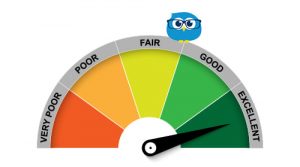The obstacles to buying a first house may appear insurmountable: Home prices have risen, mortgage interest rates are poised to rise, and by most people’s definition we’re in a market that favors sellers.
But for many who think they can’t afford the American dream of owning your own home, there’s some good news: You probably can ― and in a place you’d actually want to live.
The following are six issues that, regardless of what you’ve heard, don’t need to disrupt the general flow of house purchasing.
Problem 1: You don’t have the 20 percent down payment.
Possibly you’re actually taking care of educational loans or living check to check. Your investment account is just not unreasonably full.
The highest quality level in purchasing a house is 20% down ― that is, you follow through on 20% of the buy cost forthright. However, that doesn’t mean you can’t get a home loan with a more modest up front installment. You can regularly make good considerably less ― even just 3%.
And you won’t be alone. According to the National Association of Realtors, 81 percent of Americans purchase their first home with less than 20 percent down.
Paying less upfront has its disadvantages: You’ll need to take out a larger mortgage, obviously. When you put up less than 20 percent, the mortgage lender can also require you to take out private mortgage insurance. But the difference between 20 percent and 3 percent on a house selling for $300,000 is the difference between $60,000 and $9,000. Sounds more doable already, doesn’t it?
What if you’re still coming up short? The solution for many young adults is to tap the Bank of Mom and Dad for a gift.
Your liberal benefactors need to pay gift charge on any aggregate over the government exclusion limit for that year. The breaking point for 2017 is $14,000 starting with one individual then onto the next. That implies Mom can gift you and your accomplice $14,000 each and Dad can do likewise, which adds up to $56,000. Grandmother and Grandpa could likewise contribute.
In case you’re putting down 20% or more on a home loan that is supported by Fannie Mae or Freddie Mac, the entire initial investment can emerge out of a gift. However, in the event that your initial installment is under 20%, a portion of that cash must be your own.
Another choice that is acquiring in ubiquity, as per a new report by ATTOM Data Solutions, is to ask Mom and Dad or one more comparative with co-sign the home loan with you. Expecting their FICO assessment is acceptable and they have pay and resources that help your mortgageability, you could acquire an advance with less cash forthright. The danger here is that in the event that you miss a home loan installment, their acknowledge will be influenced just as yours ― and in the event that you quit paying totally, the bank will come after them.
The report found that 22.8 percent of all purchase loan originations on single family homes in the second quarter of 2017 involved co-borrowers listed on the mortgage or deed of trust, an increase from 20.5 percent during the same period in 2016. Among 42 cities with at least 1,500 such loan originations, those with the highest share of co-borrowers were San Jose, California (50.9 percent), Miami (45.2 percent), Seattle (39.1 percent), Los Angeles (31.1 percent), San Diego (29.4 percent) and Portland, Oregon (28.8 percent).
But since not everyone has parents who can or want to fork over financial help, here are some other places to look for down payment money:
Pull from your 401(k) or IRA assets. You may be able to borrow up to the lesser of $50,000 or 50 percent of your 401(k) plan balance, and first-time homebuyers may qualify to take up to $10,000 from an IRA without paying early withdrawal penalties. Be advised, though, that not all plans permit borrowing, and tapping into these resources so soon is likely to slow down your accumulation of retirement savings. Also, you will have to repay your 401(k) ― and some IRAs. Beware that some 401(k) plans require immediate repayment if you leave your current employer.
Avoid the large wedding. Albeit most Americans spend under $10,000 on their wedding, certain individuals are dropping $20,000, $30,000 and a whole lot more. The cash you don’t go through on one day of festivity could make a generous scratch in your home initial installment. A side project thought is to make a “wedding library” that proposes cash to purchase a house rather than dishware that you as of now have. For example, HoneyFund, which calls for special first night gifts, can likewise be utilized to gather cash for an up front installment.
Play whenever home-purchaser first card. There are government, state and nearby projects that help would-be homebuyers meet all requirements for credits or deal them awards toward their initial investments. Fannie Mae and Freddie Mac have choices that can facilitate the way for borrowers with a wide scope of wages. Indeed, even the U.S. Division of Agriculture offers some assistance to some first-time homebuyers, in the event the rustic life requests.
Problem 2: You have bad credit.
Bad credit may be the biggest obstacle of all to buying a house. A tarnished credit report will limit your choices to loans with higher interest rates or no loan at all.
The best thing to do is come clean about your bad choices and be prepared to demonstrate the new frugal and fiscally responsible you. Pay your bills and pay them on time. Talk to a mortgage broker and ask for suggestions on how to improve your credit score.
Meanwhile, here’s some guidance for each house-tracker:
Try not to cause any new obligation while you are house-hunting. Concede purchasing a vehicle until after you purchase your home. The home loan bank will survey your pay to-obligation proportion.
Try not to try and apply for any new charge cards. Each time you apply for a monetary instrument ― a charge card, a vehicle advance, another cooler on loan ― it is considered a “hard draw” on your credit. Subsequently, your FICO rating will drop a couple of focuses, and that will remain on your record for quite some time. Indeed ― only for applying!
Know what your FICO assessment is. Amazingly, many individuals start house-hunting without first discovering this immensely significant number. As indicated by the National Foundation for Credit Counseling, 42% of Americans haven’t checked their FICO rating in essentially the beyond a year. What you explicitly need to know is your FICO rating since it’s what moneylenders check out frequently to evaluate financial soundness.
As of April 2016, the average FICO score nationwide was 699 on a scale of 300 to 850. Generally, a score below 550 is considered poor. The two magical numbers are 620 for Federal Housing Administration-insured loans and 720 for conventional loans with primary mortgage insurance. If your FICO score falls below the relevant number, you may not qualify for those mortgages. For conventional loans without mortgage insurance, your FICO can dip as low as 620, but the interest rates and affiliated costs on those loans will be prohibitive.
Problem 3: You fell in love with a house far outside your price range.
Well, first of all, congratulations on actually knowing your price range. Now break up with that dreamy mansion and move on. Shopping for champagne on a beer budget never ends happily.
A house will likely be the largest single purchase of your life. Think of it as an investment that you sleep in or a retirement savings account with a kitchen. You aren’t just house-shopping for current you, but for future you. And someday you’ll want to sell this investment.
So quit thinking as far as regardless of whether your love seat will work in the space and contemplate the higher perspective. Make a rundown of the provisions you just should have, the components that would be incredible to have and the elements that you truly couldn’t care less about.
Idea: Add “great schools” to the must-have list in light of the fact that regardless of whether you don’t have kids and don’t anticipate truly having them, houses in great school locale appreciate quicker. A National Bureau of Economic Research investigation discovered that for each $1 expansion in per understudy spending, neighborhood home estimations expanded by $20.
To determine that home price range (if you haven’t), figure out how much you can really afford to spend on housing each month. A standard rule for lenders is that your monthly housing expenses (PITI for principal, interest, taxes and insurance) should not be more than 28 percent of your income before taxes. Some banks will stretch this “housing ratio,” or “front-end ratio,” to 33 percent. So if you earn $5,000 a month, the maximum PITI payment the lender thinks you can handle is about $1,650.
Banks are also looking at a “back-end ratio.” Add up your PITI payment with all other monthly revolving debt payments ― on credit cards, car loans, any other loans you carry. That sum should be no higher than 41 percent to 50 percent of your gross monthly income, depending on the type of loan and lender.
While your fantasy house might be excessively expensive until further notice, you would essentially prefer not to be underneath these proportions. The supposition that will be that your home loan installment will remain something very similar during that time while your pay will probably increment with advancements and raises. It very well might be a press to make your home loan installments for the primary year or something like that, however the work ought to get simpler.
Problem 4: You fear you’ll mess up your life with a bad loan.
For quite a long time, the 30-year contract with a decent financing cost was a sort of one-size-fits-all. Toward the finish of 30 years, you would possess the house inside and out, hold a home loan consuming party and afterward live “contract free” in retirement.
Be that as it may, many individuals presently don’t live at similar location for a long time. In 2016, the normal time allotment to possess one specific house was 10 years, as indicated by the National Association of Realtors’ “Profile of Homebuyers and Sellers.” Ten years before that, property holders would in general move each six to seven years. So there are many sorts of home loans available intended for how we live at this point.
Some loans begin with low interest rates that are then adjusted upward by a certain percentage every year or so. The popularity of these adjustable rate mortgages are blamed for helping trigger the foreclosure crisis in the mid-2000s. Banks were accused of not adequately vetting potential mortgagees who found themselves with escalating payments that they couldn’t afford.
That said, adjustable rate loans make sense for some people. The low initial rate is more affordable at the beginning of the loan, when your income may also be lower. If all goes according to plan, you’ll refinance or sell the property before the loan resets beyond your ability to afford it.
Talk through the various options with a mortgage broker, preferably one who works with more than one lender. Make sure any loan you accept doesn’t impose a penalty if you pay it off early. If interest rates drop, you want the ability to refinance ― essentially, to get a new mortgage at a lower rate.
Yet, don’t surrender at the intricacy. Individuals like you are claiming homes and settling their home loans each day. The general home loan wrongdoing rate dropped in the second quarter of 2017 to its least level since the second quarter of 2000, as indicated by a public study delivered by the Mortgage Bankers Association.
Problem 5: You don’t really know where to begin.
Some first-time purchasers think going to each open house that offers free treats is a shrewd method to begin. Regardless of whether the treats are extraordinary, you’re fooling around.
Start by teaching yourself. Since the home-purchasing measure fluctuates from one state to another, figure out how it works in the state where you need to purchase. Fannie Mae and Freddie Mac both deal classes that can assist with directing you through the cycle.
Here are some essential things that each purchaser ought to comprehend:
Realtors work on commission. As a purchaser, you don’t have to pay a forthright charge for a specialist to drive you around and take a gander at houses. The commission rates for both the posting and selling specialists are composed into the posting contract that the vender marked and are figured into the asking cost. The regular commission is 6%, parted similarly. For particularly costly properties, some of the time specialists consent to take less.
All this means that real estate agents don’t get paid unless the deal closes. They work to close deals. No deal, no pay day. Period. Agents may be very charming people, but they don’t work for you. They work for themselves.
It’s not usually a good idea to try to get around this unpleasant reality by hiring an inexperienced friend or relative who just obtained a real estate license. Work with an agent who specializes in the neighborhood you want to buy in. Drive around and see whose signs are on the most lawns.
Homes can be bought without bank or third-party mortgages. Some sellers are willing to hold the mortgage. Instead of getting a loan from a bank, the buyer signs a contract to make payments directly to the seller. This is perfect for buyers who cannot obtain a conventional loan because of credit or income issues. It also saves the buyer a big chunk on closing costs. There are no points on the mortgage (essentially, fees paid to the lender). There’s less paperwork. Should the buyer default on the loan, the seller keeps the down payment and can foreclose the same as a bank would.
A house that has been available quite a while doesn’t really have genuine defects. As a rule, homes that don’t sell inside the initial not many weeks are valued excessively high. The merchant might have ridiculous assumptions regarding the worth of his home. There is no damage in making a low proposition, and the realtor must, by law, present it to the merchant. The dealer probably won’t care for your proposition, yet in the event that he has a keen specialist, he will utilize your bid as an initial volley in exchanges.
Each house has a few blemishes. You need to conclude whether they’re lethal. Certain issues can’t be fixed however might be overseen. In the event that the house sits on a bustling corner, there will be traffic commotion. In the event that the house points toward the north, it’s logical more obscure inside. Are these imperfections you can live with? Would a line of thick greenery cut down the road sounds? Could lookout windows and some tree-managing assist with the daylight circumstance?
Other problems may be worth embracing. It’s good financial advice to buy the dumpiest house on the best street. A house that is move-in ready will inevitably cost more. Turnkey homes, as they are called, lure you in by making it easy for you to envision living there. But if you want a bargain, bring a contractor with you to the dumpier house and let her help you “see” the potential behind the peeling paint and weed-filled yard.
A final word on open houses: They’re basically training and recruiting platforms for new agents. Free cookies aside, listings rarely sell because of an open house. Most of the people who walk through are curiosity seekers often looking at properties above their price range.
Only 9 percent of buyers found the home they purchased at an open house in 2014, according to the National Association of Realtors. Yet 44 percent of buyers that year included open houses in their search.
Problem 6: You made an offer and now are seriously terrified.
Home-buying is a negotiation, with price being the big item on the table. But it’s not the only item. Every offer you make should have at least these two contingencies:
1. You will have the chance to get the property professionally inspected. If the inspector turns up problems that would cost too much for you to fix, you can renegotiate the purchase price ― or walk away.
2. Your offer is based on your ability to find favorable lending terms. If you can’t get the money, you’re not legally obligated to buy the house.
Depending on where the property is and what you’re planning for it, other contingencies might include termite inspection and a contractor’s assessment of certain remodeling costs.
When you and the seller have a contract that you both accept, you go into a process known as escrow. A third-party escrow officer will make sure that all the t’s are crossed and the i’s dotted on the paperwork and will handle the money payouts when it comes time to close the deal.
Things can in any case turn out badly bonded. An assessment can turn up a rooftop that should be supplanted or a carport with a form issue. The purchaser will most likely be unable to get financing by the cutoff time. Or on the other hand the bank’s appraiser might consider the house not worth what the purchaser will pay for it.
Few out of every odd escrow closes with the offer of a property. Broadly, 3.9 percent of home deals fizzled in 2016, up from 2.1 percent in 2015. First-time homebuyers are bound to have an arrangement self-destruct, as per the National Association of Realtors, since they’re new to the interaction ― and indeed, they might experience some kind of hysteria and search for an exit plan.
Breathe deeply. We’re still waiting to meet the person who slept well the night before escrow closed.








48 thoughts on “How To Buy A House When You Can’t Afford One”
Comments are closed.